Institut National des Sciences Appliquées (INSA)
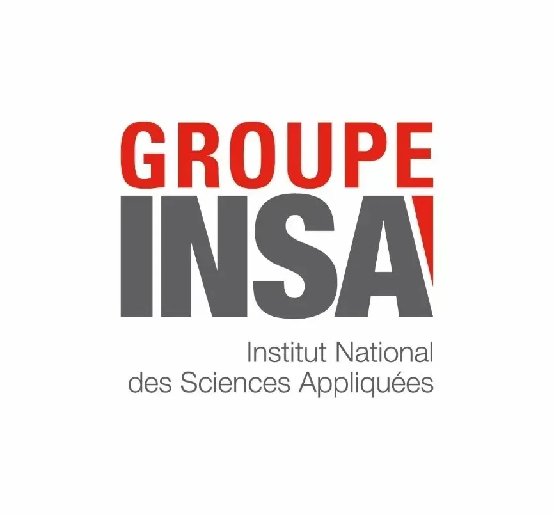
The INSA Group (Institut National des Sciences Appliquées) is one of the leading engineering education institutions in France. It consists of seven independent engineering schools located in different regions of the country:
1. INSA Lyon (Lyon)
2. INSA Toulouse (Toulouse)
3. INSA Rennes (Rennes)
4. INSA Strasbourg (Strasbourg)
5. INSA Rouen Normandie (Rouen)
6. INSA Centre Val de Loire (Centre-Val de Loire)
7. INSA Hauts-de-France (Hauts-de-France)
A Prestigious Group of Engineering Schools
The INSA Group focuses on training highly qualified engineers in various scientific and technical fields, including information technology, mechanical engineering, chemical engineering, biomedical engineering, and more. Additionally, INSA places great emphasis on internationalization, maintaining partnerships with universities and institutions worldwide.

Key Strengths of the INSA Group

• Academic Excellence: INSA is well known for its high teaching standards and rigorous academic environment. Its graduates enjoy a strong reputation both in France and internationally.
• International Environment: INSA promotes international exchange programs and offers multiple double-degree opportunities. Some courses are also taught in English.
• Strong Research Capabilities: INSA conducts advanced research in various engineering fields in collaboration with companies and research institutes.
• Multidisciplinary Education: In addition to technical skills, INSA students take courses in humanities, management, and communication to ensure a well-rounded education.
Institut National des Sciences Appliquées (INSA) – Partner Schools and Specializations
Each INSA school has its own unique strengths and advantages, allowing students to choose the most suitable institution based on their academic interests and geographical preferences.
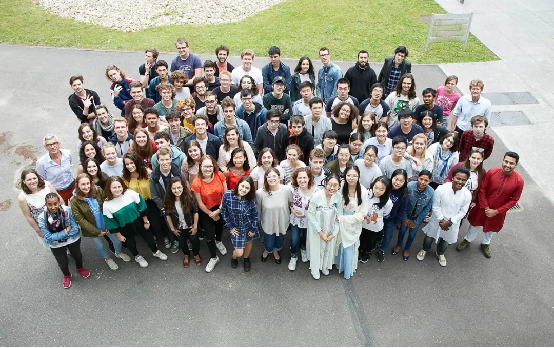
Partner Schools of the INSA Group
The INSA Group collaborates closely with six partner engineering schools in France, known as “Partenariats INSA”. These institutions share resources, promote academic exchange, and facilitate student mobility. The six main partner schools are:
1. ENSCMu (École Nationale Supérieure de Chimie de Mulhouse) – National School of Chemistry in Mulhouse
2. ENSCL (École Nationale Supérieure de Chimie de Lille) – National School of Chemistry in Lille
3. EI CESI (École d’Ingénieurs du CESI) – CESI Engineering School
4. ESITC Caen (École Supérieure d’Ingénieurs des Travaux de la Construction de Caen) – Caen School of Civil Engineering
5. ESITC Paris (École Supérieure d’Ingénieurs des Travaux de la Construction de Paris) – Paris School of Civil Engineering
6. ISAT (Institut Supérieur de l’Automobile et des Transports) – Institute of Automotive and Transport Engineering
Through collaboration in education, research, and international exchanges, these partner schools integrate resources with the INSA Group, offering expanded opportunities and platforms for students and faculty members.
INSA Lyon
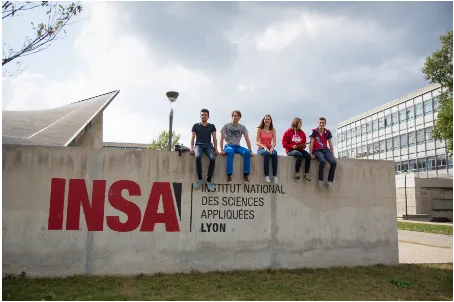
1) Campus Overview
As a renowned engineering school, INSA Lyon adheres to humanistic values, which have been the foundation of its educational approach for over 60 years.
History & Mission
Founded in 1957 by philosopher Gaston Berger and director Jean Capelle, INSA Lyon is the oldest and largest of the seven INSA schools.
INSA engineers are known for their high adaptability, innovative perspective in science and technology, and strong sense of social responsibility. These characteristics continue to reflect the vision of its founders, who established INSA with a commitment to humanism, diversity, and inclusivity, embracing students from all cultural and social backgrounds.
Education at INSA Lyon
Scientific education forms the natural foundation of the five-year engineering training program. Since the establishment of INSA Lyon, humanities have been at the core of engineering education. In addition to courses in languages, philosophy, and culture, engineering students also receive specialized training in business knowledge and management. The curriculum incorporates ethical reflection and employs innovative teaching methods to develop students' autonomy, sense of responsibility, and civic awareness, while fostering creativity and innovation.
Engineering Education & Curriculum Structure
• 5-year engineering program covering 9 specializations
• 2 undergraduate programs
• 5 specialized master's programs accredited by the Conférence des Grandes Écoles (CGE)
• 1 advanced engineering specialization program
• 4 fully English-taught master’s programs: Acoustics, Nano Engineering, Water and Wind Engineering, Artificial Intelligence
• 8 doctoral schools
Research & Innovation
INSA Lyon has 22 research laboratories, with over 700 researchers and faculty members, and around 600 PhD students. It has signed over 1,000 industrial contracts, reflecting its strong collaboration with the socio-economic sector. Research and technological expertise play a crucial role in INSA Lyon's international reputation.
Key Figures of INSA Lyon
Graduates
• Nearly 1,300 graduates per year
• A total of 6,300 students, including 5,200 engineering students
Internationalization
• All students have opportunities for international mobility
• 28% of students are international students
Personnel
• 677 staff members, including library, engineering, administrative, technical, social, and medical personnel
• 718 faculty members, lecturers, and researchers
• 613 PhD students
Campus
• Two campuses:
LyonTech-La Doua
Total usable area: 134,000 m²
11 student residences (3,100 beds)
3 dining centers (serving 1,000,000 meals per year)
110 student clubs and associations
Oyonnax (Located in the heart of “Plastics Valley”)
3 student residences
1 dining center
Various sports and recreational facilities
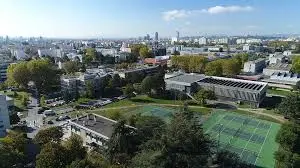
2) Specialization Overview
① The 9 Specializations in the Five-Year Engineering Program
1.Biotechnology and Bioinformatics (Biotechniques et Bioinformatique)
This specialization combines biotechnology and informatics, equipping students with technical and computational skills for life sciences. The curriculum covers fundamental biotechnology topics such as genetic engineering, molecular biology, and cell biology, while also integrating bioinformatics methods like data analysis and computational tools. Students will work on applications in genomics, proteomics, and biological data analysis.
2.Civil Engineering and Urban Planning (Génie Civil et Urbanisme)
This specialization focuses on construction, infrastructure development, and urban planning. Students will study structural mechanics, building materials, and project management, with a strong emphasis on sustainable development and smart cities. Graduates can pursue careers in civil engineering, urban planning, and transportation infrastructure.
3.Electrical Engineering (Génie Électrique)
Covering power systems, electronics, automation, and energy transmission, this specialization equips students with knowledge in energy management, signal processing, and electronic device design. Graduates can work in power companies, automation systems, and electronic equipment industries.
4. Energy and Environmental Engineering (Génie Énergétique et Environnement)
This specialization integrates energy technologies and environmental protection, focusing on renewable energy, energy efficiency, and environmental technologies. Students learn how to design and manage energy systems while minimizing their environmental impact. Graduates can work in energy development, environmental technology management, and sustainable energy solutions.
5. Industrial Engineering (Génie Industriel)
This specialization emphasizes the design, optimization, and management of production systems, covering supply chain management, process improvement, logistics, and quality control. Students will gain expertise in systems analysis and process optimization. Graduates can work as project managers, production managers, or process optimization engineers in industries such as manufacturing, logistics, and consulting.
6. Computer Science (Informatique)
The Computer Science program covers algorithm design, software development, artificial intelligence, big data, and cybersecurity. Students learn programming, database management, and computer networks. Graduates can pursue careers in software development, data analysis, network security, and AI development in high-tech industries.
7. Materials Science Engineering (Génie Matériaux)
This specialization focuses on the design, development, and application of materials, covering metals, ceramics, polymers, and composite materials. Students study the physical and chemical properties of materials and their applications in aerospace, automotive, energy, and construction. Graduates can work in materials research, testing, and quality control.
8. Mechanical Engineering (Génie Mécanique)
This specialization emphasizes the design and manufacturing of mechanical systems, covering mechanics, thermodynamics, fluid dynamics, and automation. Students learn mechanical design, machining, and equipment maintenance. Graduates can work in manufacturing, automotive engineering, and aerospace, holding positions such as mechanical designer or production engineer.
9. Telecommunications (Télécommunications)
This program specializes in communication technologies, including wireless communication, fiber optics, signal processing, and network architecture. Students learn how to design and optimize communication systems, preparing them for careers in telecom operators, network equipment manufacturing, and communication system design, contributing to modern information network development.
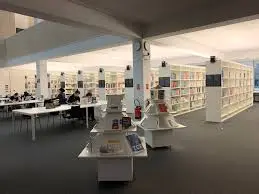
② The Two Undergraduate Programs
INSA Lyon offers two undergraduate programs designed to provide a strong scientific foundation before transitioning into the engineering curriculum.
1. Bachelor of Science and Engineering (Bachelor Sciences et Ingénierie)
This program is designed for students with a keen interest in science and engineering, providing a broad scientific and technical education. The curriculum includes mathematics, physics, chemistry, and computer science, along with introductory courses in engineering and applied sciences. The program also emphasizes innovation, problem-solving, and teamwork skills.
Key Features:
• Three-year program covering a wide range of scientific disciplines
• Emphasis on innovation and practical skills
• After completion, students can directly apply to INSA Lyon’s five-year engineering program or pursue master’s studies in other institutions
2. Bachelor of Digital Technology (Bachelor Technologie Numérique)
This program focuses on digital technologies, providing students with a strong foundation in computer science, IT, and telecommunications. The curriculum covers programming, data science, cybersecurity, artificial intelligence, and the Internet of Things (IoT). It is ideal for students looking to enter tech-driven industries or continue advanced studies in digital technology.
Key Features:
• Three-year program focusing on theoretical and practical aspects of digital technologies
• Industry-relevant skills, including programming, AI, and cybersecurity
• Graduates can work in IT, AI, data analysis, and cybersecurity or continue into related master’s programs
These two undergraduate programs provide students with a solid foundation in engineering, preparing them for INSA Lyon’s five-year engineering program or other advanced studies in technical fields.
③ Five Specialized Master's Programs Accredited by the Conférence des Grandes Écoles (CGE)
These master’s programs are designed for students who have already obtained an engineering degree or a master's degree and aim to acquire specialized expertise in a particular field:
• Mastère Spécialisé en Gestion de Projets Technologiques (Specialized Master’s in Technological Project Management)
This program focuses on leading and managing complex technological projects, covering topics such as budget control, risk management, project planning, and execution.
• Mastère Spécialisé en Systèmes d’Information et Gouvernance (Specialized Master’s in Information Systems and Governance)
This program specializes in designing and managing enterprise information systems, including data management, system security, and enterprise resource planning (ERP), equipping students with leadership skills in IT management.
• Mastère Spécialisé en Ingénierie des Risques Industriels et Environnementaux (Specialized Master’s in Industrial and Environmental Risk Engineering)
This program trains students in industrial and environmental safety, covering risk assessment, industrial security, and environmental policies and regulations, preparing them for careers in industrial safety and risk management.
• Mastère Spécialisé en Énergies Renouvelables et Efficacité Énergétique (Specialized Master’s in Renewable Energy and Energy Efficiency)
Focusing on renewable energy development and energy efficiency technologies, students learn about solar, wind, and other renewable energy technologies, suitable for careers in energy management and sustainable development.
• Mastère Spécialisé en Management de l’Innovation Technologique (Specialized Master’s in Technology Innovation Management)
This program trains professionals in technology innovation management, teaching students how to drive innovation within companies, covering innovation strategy, technology transfer, and corporate innovation.

④ One Advanced Engineering Specialization Program
• Ingénieur de Spécialisation (Advanced Engineering Specialization Program)
Designed for students with an engineering background, this program aims to deepen expertise and expand specialized technical skills in a particular engineering field. The curriculum incorporates cutting-edge industry trends, ensuring that graduates develop leading technical and managerial competencies.
⑤ Four Fully English-Taught Master’s Programs
• MSc in Acoustics
This program covers wave theory, noise control, vibrations, and acoustic technology applications. Students learn about vibration analysis, noise reduction techniques, and the design of acoustic equipment for architecture, automotive, and aerospace industries.
• MSc in Nanoscale Engineering
Focusing on the design and application of nanomaterials, students study materials science and nanotechnology, preparing for careers in microelectronics, nanobiotechnology, and materials science.
• MSc in Water and Wind Engineering
Specializing in hydraulic and wind energy technologies, students learn about sustainable water resource management and wind power system design, covering fluid dynamics, wind energy, and environmental protection technologies.
• MSc in Artificial Intelligence
This program covers machine learning, deep learning, natural language processing, and data science. Students learn how to design and implement AI systems, preparing for careers in technology companies, finance, healthcare, and other AI-driven industries.
⑥ Eight Doctoral Schools
• Mathématiques et Informatique (Mathematics and Computer Science Doctoral School)
Focuses on mathematics, algorithms, and computer science research, ideal for those pursuing theoretical and applied mathematics, AI, and data science.
• Mécanique (Mechanical Engineering Doctoral School)
Specializes in mechanical systems, structural mechanics, and material strength research, relevant to aerospace, automotive, and manufacturing industries.
• Électronique et Électrotechnique (Electrical and Electronics Engineering Doctoral School)
Research areas include electronics, power systems, and signal processing, with applications in power electronics, telecommunications, and embedded systems.
• Chimie et Génie Chimique (Chemistry and Chemical Engineering Doctoral School)
Focuses on chemical reaction engineering, molecular design, and new material development, applicable to pharmaceuticals, materials science, and chemical industries.
• Science des Matériaux (Materials Science Doctoral School)
Researches material structures, properties, and applications, with applications in aviation, automotive, nanotechnology, and energy sectors.
• Génie Civil (Civil Engineering Doctoral School)
Focuses on infrastructure, construction engineering, and urban planning, covering structural design, environmental engineering, and transportation systems.
• Énergie et Environnement (Energy and Environment Doctoral School)
Specializes in renewable energy, energy efficiency, and environmental protection technologies, addressing energy shortages and pollution issues.
• Biotechnologies (Biotechnology Doctoral School)
Conducts research in genetic engineering, biopharmaceuticals, and biomaterials, suitable for careers in life sciences and healthcare research.
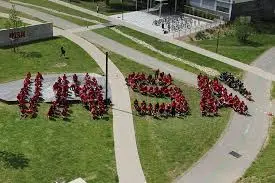
INSA Toulouse
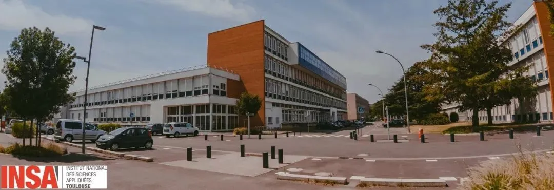
(1) School Overview
INSA Toulouse operates within a “triple ecosystem”, which defines its role and collaborations:
Founding Member of the University of Toulouse
INSA Toulouse is a founding member of the University of Toulouse, which brings together 15 higher education institutions and 7 research institutes, with over 110,000 students. This extensive network provides rich academic and research opportunities for INSA Toulouse students.
Member of the INSA Group
As part of the INSA Group, France’s largest network of public engineering schools with 7 institutions, INSA Toulouse benefits from strong national and international recognition. The INSA Group trains approximately 22,000 engineers, architects, and landscape designers each year.
Member of the ECIU (European Consortium of Innovative Universities)
INSA Toulouse and the INSA Group are part of ECIU, a network of 13 European universities focused on innovation and societal change. This alliance allows students to participate in international collaborations and gain global learning experiences.
This triple ecosystem provides INSA Toulouse students with a vast educational, research, and international collaboration network.
(2) Specialization Overview
① The Five-Year Engineering Program
1.Biological Engineering (Génie Biologique)
Focuses on biotechnology and bioengineering, covering genetic engineering, molecular biology, and biopharmaceuticals. It is applied in the pharmaceutical, biotechnology, and environmental engineering sectors.
2.Civil Engineering (Génie Civil)
Covers the design, construction, and maintenance of infrastructure, emphasizing sustainable building and urban planning.
3.Automation and Electronics (Automatique et Électronique)
Includes control systems, embedded systems, and signal processing, applied in robotics and industrial automation.
4.Chemical and Environmental Engineering (Génie des Procédés et Environnement)
Focuses on designing and optimizing chemical processes while reducing industrial pollution and energy consumption, widely used in environmental and energy sectors.
5.Mechanical Engineering (Génie Mécanique)
Covers the design and manufacturing of mechanical systems, with applications in aerospace, automotive, and manufacturing industries.
6.Applied Mathematics (Mathématiques Appliquées)
Specializes in mathematical modeling and data analysis, applied in finance, engineering, and data science.
7.Computer and Network Engineering (Informatique et Réseaux)
Covers software development, cybersecurity, and computer networks, applied in IT and telecommunications.
8.Applied Physics (Génie Physique)
Combines physics and engineering, focusing on semiconductor technology, photonics, and nanotechnology, with applications in high-tech industries.
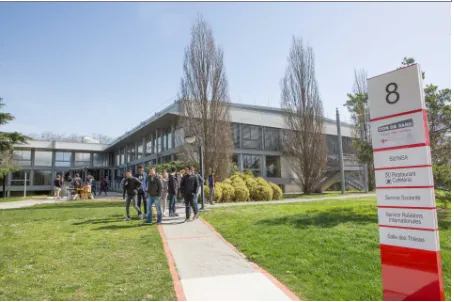
② Master’s Programs (Taught in English)
1.Fluids Engineering for Industrial Processes
This program specializes in multiphase flows, chemical reactions, heat and mass transfer modeling, mainly applied in petroleum, chemical engineering, and energy conversion industries. Students learn Computational Fluid Dynamics (CFD) tools and participate in research and industrial projects.
2.Water Engineering and Water Management
This program trains students to design and manage sustainable water treatment systems, covering water pollution control, biochemical reactors, and eco-management of water resources.
3.Industrial and Safety Engineering
Focuses on industrial process control, ensuring that products reach the market while maintaining quality and safety standards, ideal for engineers in the global industrial sector.
4.Electronic Systems for Embedded and Communicating Applications (ESECA)
This master’s program specializes in embedded system electronics, applicable to electronics, telecommunications, and the Internet of Things (IoT), preparing students for intelligent device and embedded system design.
5.BiotechEco – Industrial Biotechnology and Bioeconomy
This interdisciplinary program covers industrial biotechnology and bioeconomy, providing knowledge on biological sciences, chemistry, and bioprocess engineering to develop emerging bioeconomic markets.
③ Doctoral Schools
1.GEETS (Electrical, Electronics, Telecommunications, and Health Engineering)
Focuses on research in electrical engineering, electronics, telecommunications, and medical technology.
2.EDSDM (Sciences of Matter)
Specializes in physics and materials science, covering material structures and nanotechnology.
3.MITT (Mathematics, Computer Science, and Telecommunications of Toulouse)
Covers advanced research in mathematics, computer science, and telecommunications.
4.SEVAB (Ecological, Veterinary, Agronomic, and Bioengineering Sciences)
Focuses on biotechnology, ecology, and agricultural sciences.
5.MEGEP (Mechanical, Energy, Civil Engineering, and Process Engineering)
Specializes in mechanical engineering, energy technology, civil engineering, and industrial process engineering.
6.EDSYS (Systems Engineering)
Covers automation, control systems, embedded systems, and complex system management.
INSA Rennes
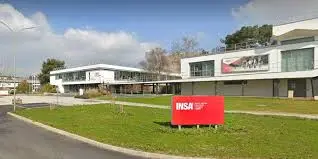
(1) School Overview
Founded in 1966, INSA Rennes (Institut National des Sciences Appliquées de Rennes) is the largest engineering school in Brittany and is recognized as one of France’s top post-baccalaureate engineering schools. It is accredited by the French Engineering Accreditation Commission (CTI) for the period 2021-2026 and has been awarded the EUR-ACE quality label. The school offers a five-year engineering program, open to students from high school graduates to those in the fourth year of a bachelor's degree.
As part of the INSA Group (France’s largest public network of engineering schools), INSA Rennes is known for its high-level education and research excellence. The school is supported by six research laboratories and offers high-quality scientific education across various disciplines:
8 engineering specializations (awarding a master's degree)
10 research-oriented master’s programs in “Science, Technology, and Health” with 12 M2 courses
3 doctoral schools
With these resources, INSA Rennes provides students with diverse academic and research opportunities.
(2) Specialization Overview
① Eight Engineering Specializations
1.Mechanical and Automation Engineering (Génie Mécanique et Automatique, GMA)
Focuses on mechanical design, manufacturing, and automation systems, covering robotics and intelligent systems. It is applied in aerospace, automotive, and industrial production sectors.
2.Energy and Electrical & Thermal Systems Engineering (Énergie et Systèmes Électriques et Thermiques, E-SET)
Covers energy management, power systems, and thermal system design and optimization, emphasizing renewable energy and energy efficiency, ideal for careers in the energy sector and sustainable development.
3.Electronics and Industrial Computing (Électronique et Informatique Industrielle, EII)
Specializes in embedded systems, automation control, and industrial computing, applied in industrial automation and smart devices.
4.Electronics and Telecommunications (Électronique et Télécommunications, E&T)
Focuses on wireless communication, signal processing, and electronic system design, suitable for communication networks and IT sectors.
5.Computer Science (Informatique, INFO)
Covers software development, algorithms, artificial intelligence, and cybersecurity, including big data and IT applications.
6.Applied Mathematics (Mathématiques Appliquées, MA)
Develops expertise in mathematical modeling, data analysis, and optimization, applied in data science, finance, and engineering simulations.
7.Physics and Materials Engineering (Génie Physique et Matériaux, GPM)
Specializes in materials science and nanotechnology, applied in semiconductors, composite materials, and high-tech industries.
8.Civil Engineering and Urban Planning (Génie Civil et Urbanisme, GCU)
Focuses on structural design, infrastructure construction, and sustainable urban planning, covering design, construction, and project management.

② Ten Master’s Programs
1.Chemistry: “Solid Chemistry and Materials” Track (Chimie : Parcours “Chimie du solide et des matériaux”)
Researches the structure and chemical properties of solid materials, applied in the development of new materials.
2.Complex Systems Engineering: “Micro-Technologies, Architecture, Networks, and Communication Systems” Track (Ingénierie des systèmes complexes : Parcours “Micro-technologies, architecture, réseaux et systèmes de communication” (I-MARS)) Covers microtechnology, communication networks, and intelligent system design.
3.Computer Science: “Information Science” Track (Informatique : Parcours “Science informatique”)
Focuses on computer science theory and practice, covering data science, algorithms, and artificial intelligence.
4.Mathematics and Applications: (Mathématiques et applications)
“Scientific Computing and Modeling” Track (Parcours “Calcul scientifique et modélisation”)
Covers mathematical modeling and scientific computing, applied in complex system simulations and analysis.
“Fundamental Mathematics” Track (Parcours “Mathématiques fondamentales”)
Focuses on pure mathematics and its theoretical applications.
“Information Mathematics and Cryptography” Track (Parcours “Mathématiques de l’information, cryptographie”)
Specializes in mathematical theories of information security and cryptography, applied in data encryption and cybersecurity.
5.Design Engineering: “Mechanics, Materials, Civil Engineering, and Mechatronics” Track (Ingénierie de conception : Parcours “Mécanique, matériaux, génie civil, mécatronique”)
Covers mechanical system design, materials engineering, and structural engineering.
6.Fundamental Physics and Applications: “Photonics” Track (Physique fondamentale et applications : Parcours “Photonique”)
Focuses on photonics and optical system research, widely used in telecommunications and sensor technologies.
7.Water Sciences: “Hydrogeology, Hydro-Biogeochemistry, and Hydropedology” Track (Sciences de l’eau : Parcours “Hydrogéologie, hydro-biogéochimie, hydropédologie”)
Studies water resource management and geological processes, focusing on hydrological cycles and water quality control in ecosystems.
8.Digital Sciences and Sports: “Digisport” Track (Sciences du numérique et sport : Parcours “Digisport”)
Explores digital technologies in sports, including sports data analysis and smart equipment development.
9.Electronics, Electrical Energy, and Automation: “Signal, Vision, Waves, Smart Systems, and Energy” Track (Électronique, Énergie Électrique et Automatique : Parcours “Signal, Vision, Ondes, Smart Systems et Énergie”)
Focuses on signal processing, image analysis, wave physics, and intelligent energy systems.
10.Cities and Urban Environments: (Villes et Environnements Urbains)
“Innovative Strategies for Urban Territories: Anticipating Transitions” (In Situ) Track (Parcours “Stratégies innovantes des territoires urbains : anticiper les transitions”)
Focuses on urban transformation strategies and future city development trends.
“Engineering Urban Service Networks: Cities in Transition (ISUR-VED)” Track (Parcours “Ingénierie des services urbains en réseaux : villes en devenir”)
Specializes in urban infrastructure design and maintenance, focusing on network optimization and sustainable urban development.
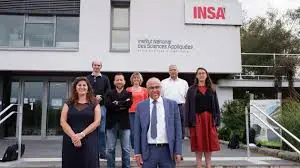
③ Three Doctoral Schools
1.SPI (Sciences for Engineering) Doctoral School (Sciences Pour l’Ingénieur)
Covers broad engineering research, including mechanical engineering, materials science, electronics, and energy systems. It supports students seeking advanced research opportunities in engineering design and technological innovation.
2.MathSTIC (Mathematics and Information & Communication Sciences) Doctoral School (Mathématiques et Sciences et Technologies de l’Information et de la Communication)
Specializes in mathematics, computer science, and ICT (Information and Communication Technology), covering research areas such as algorithms, cybersecurity, and data science.
3.3M (Matter, Molecules, and Materials) Doctoral School (Matière, Molécules et Matériaux)
Focuses on advanced research in physics, chemistry, and materials science, covering topics such as nanomaterials, molecular physics, and material applications.
INSA Strasbourg

(1) School Overview
INSA Strasbourg is a public institution of science, culture, and professional education, established in 2003, and is a member of the INSA Group. Supervised by the French Ministry of Education, it offers specialized programs in engineering and architecture.
The engineering programs at INSA Strasbourg are accredited by the Commission des Titres d’Ingénieur (CTI), while the architecture programs are accredited by the Ministry of Culture. The school is supported by three research units, which contribute to its academic and research activities.
(2) Specialization Overview
① The Five-Year Engineering Program
1.Civil Engineering (Génie Civil)
Focuses on the design, construction, and maintenance of buildings and infrastructure.
2.Surveying Engineering (Topographie)
Covers geomatics, cartography, and geographic information systems (GIS), applied to environmental and territorial planning.
3.Electrical Engineering (Génie Électrique)
Studies and designs electrical systems and automation technologies.
4.Mechanical Engineering (Génie Mécanique)
Focuses on the design and manufacturing of mechanical and industrial systems.
5.Mechatronics (Mécatronique)
Integrates mechanical engineering, electronics, and industrial computing in automated and intelligent systems.
6.Plastics Engineering (Plasturgie)
Studies polymers, plastics, and composite materials for high-performance industrial applications.
7.HVAC and Energy Engineering (Génie Climatique et Énergétique)
Specializes in the design of energy systems for buildings, energy efficiency optimization, and climate control management.
8.Urban and Regional Planning (Aménagement et Environnement)
Focuses on sustainable urban planning, territorial development, and environmental management.
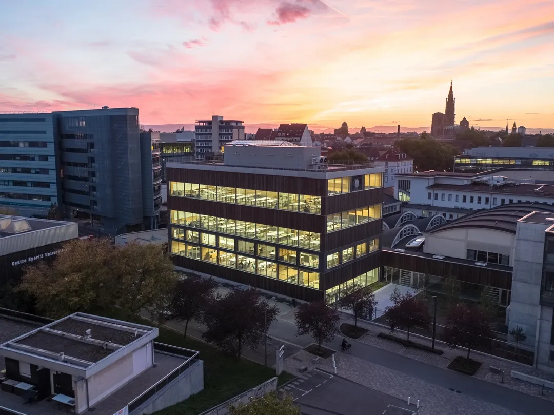
② Master's Programs
1.Master in Urban Planning and Regional Development (Master Urbanisme et Aménagement)
Studies territorial planning and urban development management, integrating mobility, infrastructure, and sustainable development concepts.
2.Master in Materials Science and Engineering (Master Sciences et Génie des Matériaux)
Focuses on the research and development of material properties and applications, with engineering applications in various fields.
3.Master in Imaging, Robotics, and Biomedical Engineering (Master Image, Robotique, Ingénierie pour le Vivant)
Combines imaging technologies, robotics, and biomedical engineering, with applications in medicine and biotechnology.
4.Master in Applied Physics and Engineering Physics (Master Physique Appliquée et Ingénierie Physique)
Focuses on the application of physics to solve technical and industrial challenges, particularly in optics, photonics, and nanotechnology.
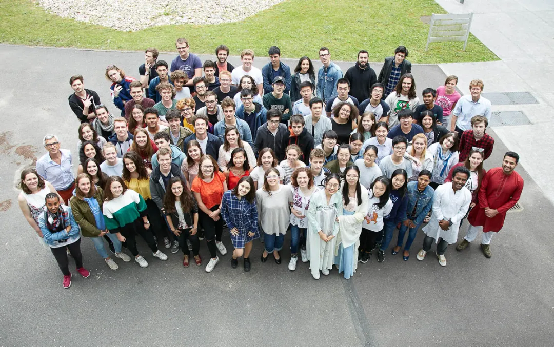
INSA Rouen Normandie

(1) School Overview
INSA Rouen Normandie is a public engineering school offering a five-year engineering program, as well as a three-year program for students who have completed two years of higher education. The school provides education in 10 specialized fields, with study options available in full-time or apprenticeship formats. The first semester, known as STPI, provides foundational education for post-baccalaureate engineering students.
As part of the INSA Group, the largest network of public engineering schools in France, INSA Rouen Normandie is known for its high-quality education and scientific research. The school is located on the Madrillet Technology Center Campus in Saint-Étienne-du-Rouvray, a site with a rich cultural and historical background.
Additionally, INSA Rouen Normandie maintains strong ties with industry and research institutions, providing students with practical and research opportunities that align education with industry needs. The school also emphasizes international collaboration, offering students global exchange opportunities to enhance their international competitiveness.
(2) Specialization Overview
① The Five-Year Engineering Program
1.Chemistry and Chemical Engineering (Chimie et Génie Chimique)
Focuses on the design, optimization, and control of chemical and industrial processes, applicable to the chemical, pharmaceutical, and environmental technology sectors.
2.Energy Engineering (Génie Énergétique)
Specializes in energy system design and management, covering renewable energy technologies and energy efficiency improvements.
3.Civil and Urban Engineering (Génie Civil et Urbanisme)
Covers the design and construction of civil structures and urban planning, with an emphasis on sustainable development and environmentally friendly building practices.
4.Mathematical and Software Engineering (Génie Mathématique et Informatique)
Combines mathematics and computer science, applied in software development, data analysis, and information technology.
5.Information and Communication Technology (Sciences et Technologies de l’Information et de la Communication)
Focuses on computer systems, cybersecurity, and IT applications, suitable for the IT and telecommunications industries.
6.Industrial Risk Management and Process Engineering (Management des Risques Industriels et Génie des Installations)
Specializes in industrial safety, risk assessment, and process control, critical in chemical, energy, and heavy industries.
7.Mechanical Engineering (Génie Mécanique)
Studies the design, manufacturing, and maintenance of mechanical systems, applied in industries ranging from automotive to aerospace.
8.Energy Performance (Performance Énergétique)
Researches technologies and strategies to improve the energy efficiency of buildings and industrial systems, focusing on energy conservation and emissions reduction.
9.Industrial Performance and Innovation (Performance Industrielle et Innovation)
Focuses on optimizing industrial systems and innovation management, emphasizing process improvement and technological advancements.
10.Process Innovation and Safety Performance (Innovation Performance et Sécurité des Procédés)
Specializes in industrial process innovation and safety enhancement, aiming to improve production efficiency while ensuring operational safety.
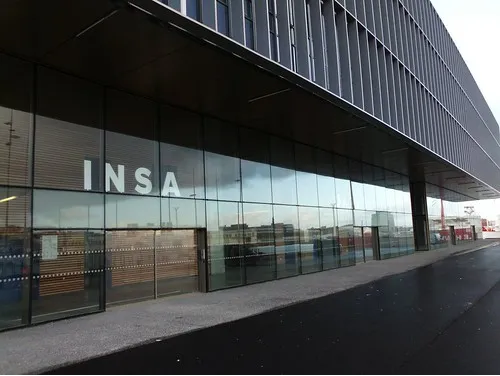
② Master’s Programs
1.Master in Chemistry, Health, Process Engineering, and Industrial Ecology (Master Chimie, Santé, Génie des procédés, Écologie industrielle)
Integrates chemistry, health sciences, engineering, and industrial ecology to train professionals for innovation and sustainable development across multiple sectors.
2.Master in Energy, Propulsion, Mechanics, Materials, Civil Engineering, and Sustainable Construction (Master Énergies, Propulsion, Mécanique, Matériaux, Génie Civil, Constructions Durables)
Covers a wide range of engineering fields, from energy technology to civil engineering, focusing on sustainability and eco-friendly design for future engineers and researchers.
3.Master in Information Systems, Mathematical Modeling, and Simulation (Master Systèmes d’information, Modélisation Mathématique et Simulation, Numérique)
Specializes in advanced computing technologies, including information system development, mathematical modeling, and simulation, preparing students for careers in high-tech industries.
4.Master in Mechanical Engineering and Materials Science (Master Mécanique, Matériaux)
Explores advanced concepts in mechanical design and materials science, with a particular focus on innovative material applications and performance enhancement.
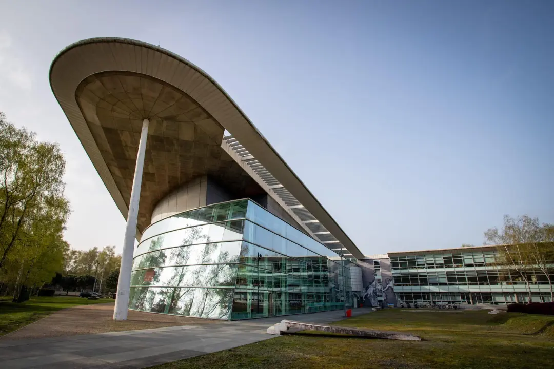
INSA Centre Val de Loire

(1) School Overview
���� INSA Centre Val de Loire (Institut National des Sciences Appliquées Centre Val de Loire) is a public institution of science, culture, and professional education (EPSCP). It was established on June 19, 2013, under Decree No. 2013-521 of June 21, 2013, published in the Official Journal.
As a member of the INSA Group, INSA Centre Val de Loire operates across two campuses: Blois and Bourges, in the Loire Valley region. The school offers a five-year integrated engineering program, emphasizing a multidisciplinary, scientific, humanistic, and entrepreneurial approach, with a strong international focus.
INSA Centre Val de Loire trains landscape designers, engineers, and researchers, providing education that integrates science and technology, industrial risk management, energy, information technology, and systems engineering.
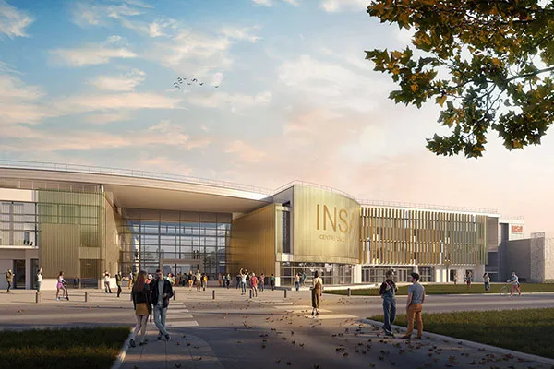
(2) Specialization Overview
① The Five-Year Engineering Program
1.Industrial Risk Control (MRI – Contrôle des Risques Industriels)
Focuses on managing industrial risks inherent in business operations, including prevention measures, safety of personnel and assets, environmental impact, corporate responsibility, and external risk management.
2.Information Technology and Security (STI – Sécurité et Technologies de l’Information)
Specializes in information security, focusing on the development of new IT systems and ensuring their security.
3.Energy, Risks, and Environment (ERE – Énergie, Risques et Environnement)
A work-study program covering technological risk prevention, quality engineering, and building energy efficiency, providing practical experience in corporate energy management, quality control, and risk governance.
4.Industrial Systems Engineering (GSI – Génie des Systèmes Industriels)
Focuses on the overall design and optimization of industrial systems, including production processes, system integration, and supply chain management.
5.Energy and Propulsion (ENP – Énergie et Propulsion)
Specializes in energy system design and management, with a focus on propulsion technologies in the aerospace and automotive industries, including renewable energy applications and propulsion system optimization.
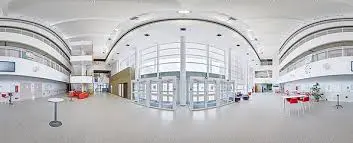
② Master’s Programs
1.Master in Applied Physics and Engineering Physics
Designed for students interested in applied physics and engineering sciences, covering electronic systems, instrumentation, ultrasound technology, automation, robotics, and computer vision.
2.Master in Energy and Materials – Energy, Combustion, and the Environment Specialization
Focuses on energy technologies and environmental impact, particularly combustion processes and the environmental effects of energy systems.
3.Master in Information Technology – Digital Nomading, Intelligence, and Security Specialization
Covers the latest developments in information technology, including digital security and data intelligence applications.
4.Master in Mechatronics, Automatic Control, and Signal Robotics – Mechatronics Specialization
Focuses on mechatronics, automatic control systems, signal processing, and robotics, integrating advanced technologies for intelligent systems.
INSA Hauts-de-France

(1) School Overview
���� INSA Hauts-de-France was established on January 1, 2020, as part of the Université Polytechnique Hauts-de-France (UPHF). Built on a strong academic foundation, the school is recognized at regional, national, and international levels. As one of the seven institutions in the INSA Group, INSA Hauts-de-France stands out through its collaborative programs with UPHF.
The school offers a wide range of programs, from Bac+2 to Bac+8, including:
· Engineering programs
· Master’s and PhD programs
· Short university courses (DEUST), Bachelor’s, and Professional degrees
The institution places a strong emphasis on practical training, integrating internships, apprenticeships, and industry-taught courses to ensure that students acquire real-world experience.
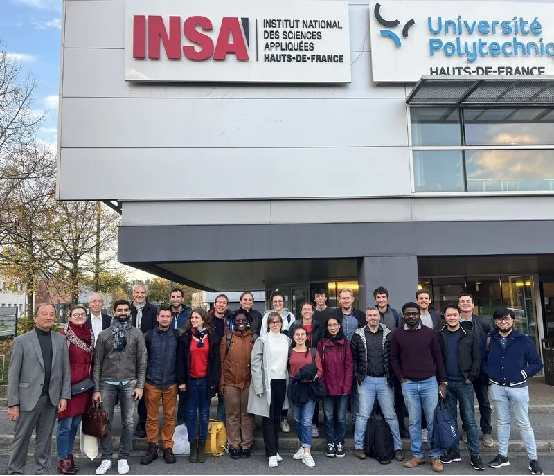
(2) Specialization Overview
① The Five-Year Engineering Program
1. Audiovisual and Multimedia Engineering
2. Embedded Systems Electronics Engineering
3. Civil and Building Engineering
4. Electrical and Industrial Computing Engineering
5. Industrial Engineering
6. Mechanical Engineering
7. Computer Engineering
8. Computer and Cybersecurity Engineering
9. Industrial Computing and Automation Engineering
10. Mechanical and Energy Engineering
11. Mechatronics Engineering
② Master’s Programs
1. Audiovisual, Interactive Digital Media, and Games (AMINJ)
2. Energy
3. Civil Engineering
4. Production Management, Logistics, and Procurement (GPLA)
5. Computer Science
6. Mathematics and Applications
7. Nutrition and Food Science
8. Quality, Hygiene, and Safety
9. Networks and Telecommunications
10. Materials Science and Engineering
11. Transport, Mobility, and Networks

Previous article:This is already the first article Next article:This is already the last article
Return to List-
 Audencia Business School
Audencia Business School
2025-03-07
-
 NEOMA Business School
NEOMA Business School
2025-03-07
-
 SKEMA Business School
SKEMA Business School
2025-03-07
-
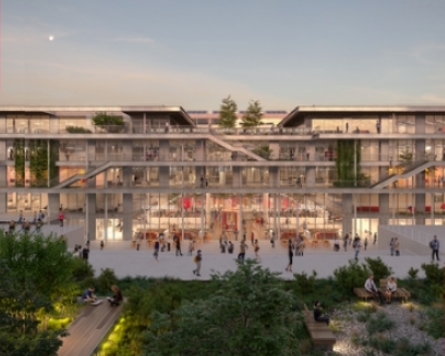 EMLYON Business School
EMLYON Business School
2025-03-07


 Cn
Cn En
En Fr
Fr

